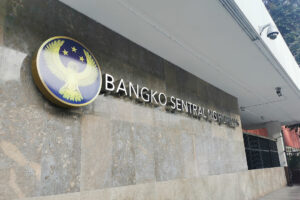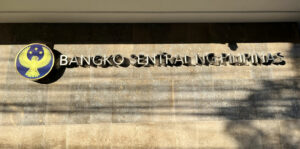Business
HSBC expects BSP to start easing in the fourth quarter

The BANGKO SENTRAL ng Pilipinas (BSP) is expected to delay policy easing as upside risks to inflation have worsened, but rate hikes are unlikely, HSBC Global Research said.
“The easing cycle may be delayed, but we don’t think rate hikes will be on the horizon with non-monetary policy in place,” HSBC ASEAN (Association of Southeast Asian Nations) economist Aris D. Dacanay said in a statement report on Thursday.
HSBC said the central bank is expected to start easing with a 25 basis points (bps) cut in the fourth quarter, later than its previous forecast of rate cuts in the third quarter.
It now sees interest rates falling to 6.25% by the end of the year, compared to 5.75% previously.
“Nevertheless, we continue to expect the BSP to cut its policy rate to as much as 5% by the end of 2025.”
The Monetary Board has raised borrowing costs by 450 basis points from May 2022 to October 2023, bringing the policy rate to a near 17-year high of 6.5%. The BSP met for the fourth consecutive time in April.
Mr Dacanay cited recent developments that have increased upside risks to the inflation outlook, such as volatile oil prices.
“Inflation risks have increased over the past two weeks. Tensions in the Middle East have caused oil prices to rise, while global rice prices remain high,” he said.
HSBC also noted that the dollar’s recent strength, coupled with persistent inflation in the United States, could prompt the U.S. Federal Reserve to keep interest rates tight for longer.
BSP Governor Eli M. Remolona Jr. said earlier that expectations of delays in Fed rate cuts have led to a weakening of other currencies against the dollar, including the peso.
Fed Chairman Jerome H. Powell has said they may have to maintain “restrictive” policy rates for longer due to persistent inflation in the US. Markets now see the Fed cutting rates in September, rather than the initial expectations of June.
“Market players already expect headline inflation to exceed the BSP’s 2-4% target in coming months as base effects are unflattering,” HSBC added.
Inflation accelerated for the second month in a row to 3.7% in March. This brought the inflation average for the first quarter to 3.3%.
April inflation data will be released on May 7.
The BSP expects full-year inflation to stabilize at 3.8%. The central bank also previously warned that inflation could exceed the 2-4% target in the next two quarters given persistent upside risks.
“To better support the peso and tighten its grip on inflation expectations, the BSP is likely to keep its word and begin its easing cycle at the end of this year. And the BSP can easily do this with robust growth,” Mr Dacanay added.
He also cited other macroeconomic indicators that give the BSP room to delay easing, such as strong labor market conditions, faster credit growth, stable exports and improved manufacturing.
“We also downplay the risk of further interest rate increases. While inflation risks have materialized in the form of high oil and rice prices, these risks are supply-side in nature,” HSBC said.
Mr Dacanay said the most efficient way to mitigate the potential impact is through supply-side interventions.
Mr Remolona previously said current policy settings were “already tight”. The central bank would only consider further tightening if inflation expectations are loosened. — Luisa Maria Jacinta C. Jocson











